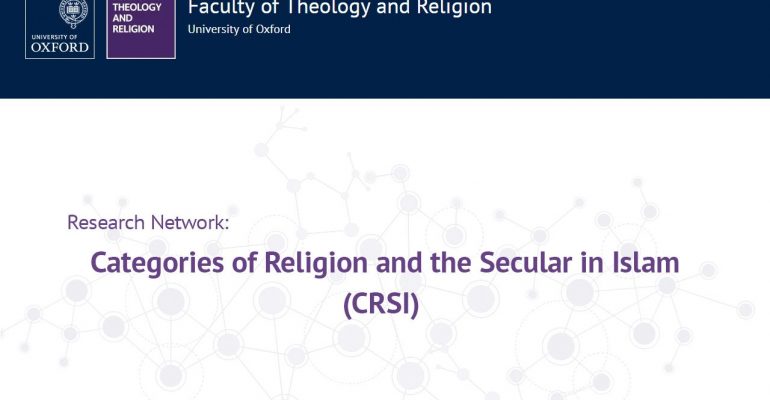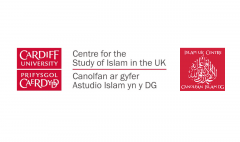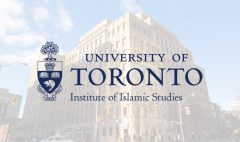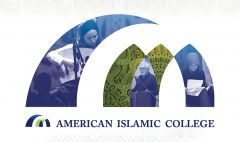Categories of Religion and the Secular in Islam (CRSI)
December 6, 2018 2023-07-26 9:23Categories of Religion and the Secular in Islam (CRSI)

Categories of Religion and the Secular in Islam (CRSI)
University of Oxford, Faculty of Theology
“Categories of Religion and the Secular in Islam” (CRSI) is an interdisciplinary network of scholars interested in critical approaches to ‘religion’ and ‘the secular/non-religious’ as discursive categories in Islamic contexts.
The network is coordinated by Dr Alex Henley, Marie Curie Fellow in Theology & Religion at the University of Oxford.
The CRSI network includes anthropologists, historians, philologists, political scientists and others working on Muslim discourses and practices around the world. As well as creating a forum for discussion and dissemination among these scholars, the network will develop an online presence designed to offer a public resource for promoting this sub-field beyond its specialist membership: (a) introducing its critical methodologies as significant to others working on Muslim societies; and (b) presenting its findings to wider audiences including educators in Islam or religion, and non-specialist scholars seeking comparative data.
Key Research Questions
The network provides a forum for discussion of questions including: To what extent, if any, is ‘religion’ a useful category of analysis in Islamic Studies? Was there an Islam ‘before religion’ (Nongbri 2013)? In what changing or varied ways do we see ‘religion’ as a bounded category of practice articulated, operationalized and institutionalized by or for Muslims in recent centuries? What distinctive characteristics and functions (e.g. rights, freedoms, authority, privatization) does ‘religion’ have as a reified subject in Islamic discourse, that distinguish it from ‘non-religious’ or ‘secular’ domains? Does a ‘religion-secular’ dichotomy operate also in contexts where ideological secularism is rejected as un-Islamic? What role have colonial and post-colonial states played in Muslim (re)formulations of ‘religion’ and its others? Do such trends in Islamic contexts compare to the invention of ‘religion’ in other colonial contexts, or should we see Islam as exceptional in some way? What new methodologies may shed light on these dynamics? What implications may the critical study of ‘religion’ have for the way Islam is taught in schools and universities?
Source: Faculty of Theology and Religion, University of Oxford








